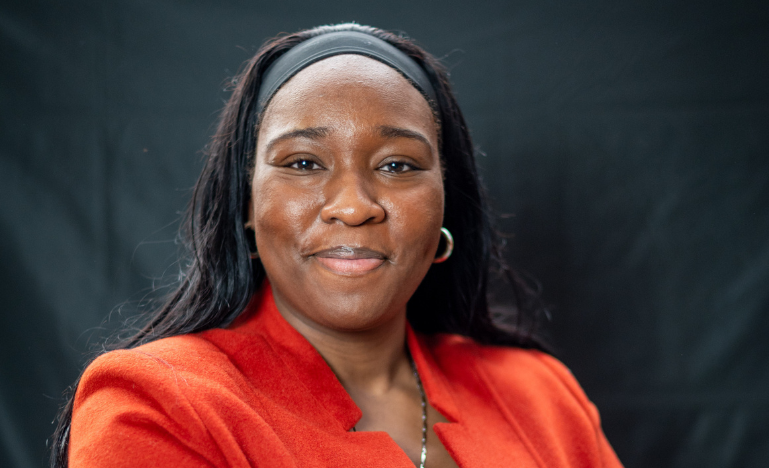A lot left to learn
A law student and a lawyer argue for greater understanding, investment and cooperation to make legal education accessible to people who are neurodivergent

Despite the significant headway that law schools have made in advancing inclusion in recent years, legal education remains largely inaccessible for students who are neurodivergent. And while there is no blanket remedy to address this, a deeper understanding of the current shortcomings offers solutions.
Avoiding assumptions and ableism
When it comes teaching neurodivergent law students, one general principle to keep in mind is: “If you can’t explain it simply, you don’t know it well enough.” The biggest part of being a teacher is meeting your students where they are, explaining concepts in terms they can understand, and figuring out what they need to learn.
While neurodivergent students may learn differently, that is no reflection on their capacity to learn, do assignments or write exams. Yet it is not uncommon for people and professors to assume, particularly once they hear the word “dis-ability,” that someone isn’t capable of handling the coursework.
No one-size-fits-all approach
Pan-disablism refers to systems that apply a one-size-fits-all approach to accommodating individuals with diverse physical or intellectual differences. For instance, a law school might treat all neurodivergent students the same, offering them only copies of PowerPoints before class begins, extra time on exams and assignments, despite their varying diagnoses and medical recommendations. Surely the steps taken to accommodate individual circumstances should be different.
Yet when students advocate for themselves, too often they are met with questions rather than support. Neurodivergent students often report being made to feel like they’re trying to take advantage of the system or gain a leg up on their classmates when advocating for accessible education and accommodation.
For instance, a professor may be reluctant to offer a class recording, not only due to concerns about saying something that could be misinterpreted later, but also because they fear students might skip class if it’s recorded. Why not view it as a way to genuinely support students instead? Providing a recording acknowledges the reality that life happens—whether due to illness or personal circumstances—and ensures that all students have the opportunity to succeed. A focus on humanity and understanding should be at the core of academic support. Why not consider that students want accessibility because they want to be able to receive the education for which they are paying, alongside their peers, on a level playing field?
Law professors: Enhancing curriculum for neurodivergent students
Law professors face the difficult task of creating a comprehensive and cohesive curriculum that meets the diverse needs of their students. It’s understandable that time constraints and other priorities can make it difficult to balance office hours, research, and teaching responsibilities. However, there are solutions to ensure neurodivergent students receive appropriate access to the education that law schools are meant to provide.
The first step to providing comprehensive education is to foster open communication with neurodivergent students, allowing both students and faculty to explore learning strategies that will both meet the needs of neurodivergent students and enable faculty to become more effective teachers. Neurodivergent students often possess unique strengths that can enrich the curriculum. For instance, individuals with autism may excel in detail-oriented tasks and concentration; those with dyslexia often demonstrate strong visual and problem-solving skills; students with dyspraxia tend to be innovative and socially aware; and those with ADHD are often creative and passionate thinkers. By considering these diverse perspectives, law professors can create a curriculum that fosters legal innovation and build a supportive environment where students draw on their unique skills to enhance their understanding of legal principles.
To better support all law students, professors should diversify in-class activities beyond traditional lectures. Incorporating exercises, discussions, and targeted quiz preparation can boost engagement. Balancing lecture time with experiential learning opportunities also helps students, particularly neurodivergent ones, grasp legal concepts and see how those concepts play out in real-world applications. For example, in a family law course, the first 10 to 20 minutes could focus on the legal principle of compensatory vs. non-compensatory spousal support, by examining three cases—two from before the amendments to the Divorce Act and one from after, if possible. This would be followed by a 20-minute discussion on factors relevant to the court’s determination of spousal support in divorce cases. Depending on the class duration, students could spend some time filling out a section on spousal support in an application based on these principles in response to a short fact pattern.
Better interviews make for a more diverse hiring process
Law firms must be intentional when interviewing neurodivergent students, as the process often allows implicit biases to seep into hiring decisions, resulting in the same types of candidates being offered opportunities. There’s a typical image of what a lawyer should look, speak, and think like, and this narrow mindset restricts diversity in the profession.
One general concern shared by neurodivergent and non-neurodivergent students is that some employers and recruiters hesitate to invest in training articling students who haven’t had the chance to gain experience during law school through summer placements or internships. But investing in these students is an investment in the future. Teaching them now allows them to become exceptional lawyers who will one day credit you for the guidance and opportunity that helped shape their careers.
When interviewing neurodivergent candidates, don’t just consider how easily they can fit into your firm—that’s the obvious part. Instead, focus on their unique potential and the diverse abilities they bring. While some may not make direct eye contact during a Zoom or in-person interview or have a stutter, they can bring invaluable skills, such as drafting precise legal documents, writing concisely, negotiating complex deals with clients and other lawyers, and memorizing extensive case law.
It’s also important to recognize that neurodivergent students may choose not to disclose their differences during interviews or at the firm, fearing potential biases about their ability to work at a fast pace and meet deadlines. Yet, their ability to take the LSAT, gain admission to law school, and earn grades—whether stellar or average—should show that such biases shouldn’t even be a factor, given their resilience and capacity to succeed.
An equitable and inclusive approach to recruitment is important. It ensures that neurodivergent law students and lawyers are not overlooked, and it recognizes that the very person who might otherwise be discounted could be the one who connects with clients in ways others cannot.
Neurodivergent law students will learn the material, engage with the questions (even if provided in advance), and grasp the relevant legal principles and case law. All they ask is that you approach the hiring process with an open mind. If firms continue to hire based on outdated expectations, they can’t be surprised when the legal profession remains as homogeneous as it was years ago.
Getting law faculties, accessibility centres and law societies on the same page
There is currently a turf war between on legal education between law faculties and accessibility centres over the best needs of neurodivergent students. Accessibility centres often provide excellent accommodations for undergraduate students, but this is not the same for law schools. Instead, law faculties have been known to overpower the needs of neurodivergent students by promoting laissez-faire policies like universal learning designs and generalized accommodations for all students. This results in a form of ableism, where neurodivergent students are expected to level up to the universal standard. The fallout is that neurodivergent students undergo extreme emotional and mental hardships.
Law schools and accessibility centres across Canada need to be on the same page regarding the best interests of neurodivergent students. This means partnering to implement workshops that educate law professors on how to teach and adapt to neurodivergent needs, such as providing equitable exam times determined by and with the student. For instance, a student who has a 48-hour remote exam should be granted additional time to complete their assessment so long as their accessibility advisor approves, rather than their law professor. Before any old biases reappear, consider this recommendation not as an attempt to game the system, but instead, as a way to uphold a student’s right to an education.
Law faculties should also grant accessibility services the autonomy to develop reduced course load pathways for students without the biases of “part-time status” and other policy restrictions. Accessibility services also have a responsibility to hire access advisors who deal specifically with professional degree programs, which should be a part of the university system that is not yet accessible and where proper accommodation is lacking. This will help reduce the backlog of inquiries from undergraduate and post-graduate students.
Law societies should revise their language and ethical guidelines concerning adaptive technology and software, particularly for articling students. This revision should clarify the distinction between the ethical use of transcription software for notetaking and the unauthorized recording of client interactions. Such updates will support neurodivergent individuals with diverse abilities, including those with carpal tunnel syndrome, osteoarthritis, and tendinitis, by reducing the stigma associated with using these tools and encouraging transparency about their needs. Normalizing the use of reliable and confidential transcription software can enhance the accuracy of client interactions, benefiting law firms and other agencies alike.
Too often, making legal education accessible for neurodivergent students is viewed as difficult. Law schools can become a more equitable place by implementing these suggestions. The result will be a legal profession that is more reflective of Canada’s population and better able to meet its needs.
This version of our article was originally published in the Ontario Bar Association’s JUST Magazine. Reprinted with permission.


